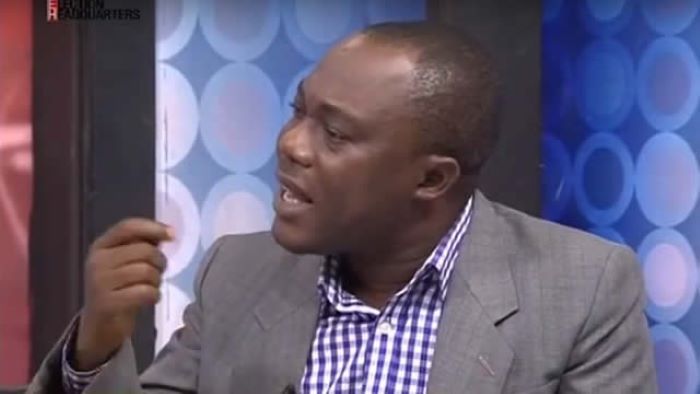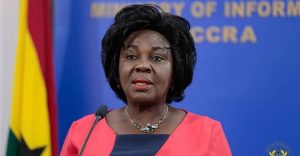Professor Ransford Edward Van Gyampo, Department of Political Science, University of Ghana on Thursday said the 1992 Constitution upsets the balance of power between the arms of government, the Executive, Legislature and Judiciary.
The balance of power favours the Executive in a manner that undermines constitutionalism, nevertheless, after over 27 years of operation, Prof Gyampo asserted that the 1992 Constitution was a weak mechanism in bridling the exercise of power.
Prof Gyampo stated at inter-college lecture on the 1992 Constitution and Constitutionalism in Ghana, organised by the College of Humanities of the University of Ghana.
The event was chaired by Prof Samuel Agyei-Mensah, Provost of the College of Humanities and was attended by over 600 participants comprising faculty and students from the College of Humanities, political party representatives, civil society actors, and media practitioners.
Prof Gyampo, who is an Associate Professor of Political Science and Director of the Centre for European Studies at the University of Ghana, said the theory of constitutionalism postulated deliberate legal limitations placed on the powers and authority of those who exercised fiduciary trust of the people.
He argued that the idea of constitutionalism was all about checking or shackling the exercise of power in order to avoid dictatorship and abuse.
Even though Prof Gyampo conceded that one of the mechanisms for promoting constitutionalism was the existence of a constitution, he was quick to point out the fact that the mere existence of a constitution may not necessarily guarantee constitutionalism as some constitutions.
He said the 1992 Constitution, lacked the needed countervailing mechanisms to check the exercise of power, stressing that the Constitution is a neo-presidential arrangement that combined some features of both the US Presidential and British Westminster systems of Government.
Having modelled three different constitutions along the lines of both systems since 1960, there emerged the preference for constitutional hybridity in 1992.
Prof Gyampo, said the President, had the overwhelming power of appointment and patronage and appointed “virtually everybody” in Ghana.
He said the President had a say in the appointment of officers he did not appoint directly. “The government of Ghana is his government and from ministers, heads of boards, agencies, commissions, mayors and members of the council of state, he is the appointing authority”.
In addition to being the Commander-in-Chief of the Ghana Armed Forces, Fountain of Honour and Mercy, the President, according to Prof Gyampo was also the source of all legislations in Ghana and every law passed by parliament emanated from the presidency.
According to Prof Gyampo, article 108 that conferred exclusive right on the President to introduce into parliament bills that had financial implications was not only repugnant to Parliament’s constitutional control of the purse, but also made the President the sole Legislator in Ghana given the fact that “every bill has financial implications”.
Prof Gyampo, said this had stifled legislative initiative, conferred the power of law making in the sole hands of the executive and also accounted for the absence of Private Members Bill in Parliament since 1992.
He said as per the hybrid arrangement, the President, was required to appoint majority of his ministers from Parliament and this appointing power was exercised to the disadvantage of the Legislature.
“This arrangement, weakens the oversight role of parliament and leaves the executive unfettered in the sense that parliamentarians who are also ministers cannot question colleague ministers on the floor of parliament as required because they serve in the same government.
“Parliamentarians who are also ministers owe collective responsibility for all government decisions and hence are unable to criticise the government on the floor of parliament,” he said.
He said few Members of Parliament who were not ministers also joined their colleagues in singing the praises of the government in order to benefit from ministerial appointment.
“This practice does not only undermine constitutionalism, but also weakens the representative role of MPs and sacrifices the peculiar interest of their constituents for that of the ruling government,” he said.
According to Prof Gyampo, it is difficult for MPs who are also ministers to find time to attend to parliamentary matters; “these MPs are absent from the floor of parliament virtually at all times because of Cabinet meetings, travels as well as ministerial policy formulation and execution”.
In this regard, they are also unable to attend Committee meetings which are “the actual workshops of parliament.”
He added that the President’s power to surreptitiously appoint the Speaker of Parliament, Majority Leader, Clerks and members of certain committees of parliament, as well as the creation of the Ministry of Parliamentary Affairs was disingenuous provisions and practices that made Parliament subservient to the President and undermined the former’s checks on the latter.







